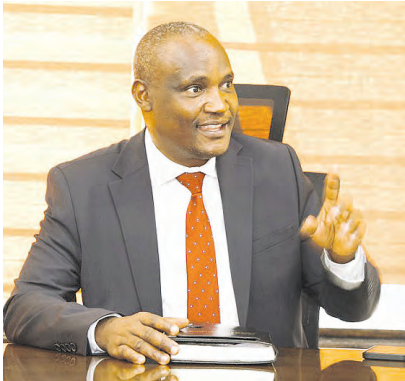

Treasury Cabinet Secretary John Mbadi has allayed fears over
the payment of national examinations, affirming that the government will fund
the Kenya Certificate of Secondary Education (KCSE) exams.
The CS moved to calm growing public anger following the government’s plan to phase out the national examination fee waiver, which has been in place for a decade.
Speaking during a town hall meeting on Monday, June 9, 2025,
Mbadi assured Kenyans that the government will cover the cost of national exams
for all students this year.
He clarified that while the initial budget allocations did not include funds for exams such as the KCSE, the Treasury has since made the necessary funds available.
“Initially, we did not provide examination fees for this year, but we have made the money available,” Mbadi said.
“I assure all Kenyan students that they will sit their
exams. The government will pay for it; we are just restructuring the system.”
Previously, Mbadi had cited the unsustainability of the decade-long exam subsidy amid growing budget deficits as the reason behind the proposed scrapping of the waiver.
The move would have seen the Ministry of Education introduce a differentiated model for charging parents examination fees, whereby only learners from vulnerable households would continue to benefit from exam waivers.
During the Monday town hall meeting, the Treasury CS revealed that the Cabinet had raised concerns over the high cost of administering national exams, specifically questioning why exam materials were being printed abroad.
“What happened was that, as Cabinet, we did not agree with the amount of money being spent on exams; we couldn’t understand why examinations were printed outside the country, yet more sensitive documents like passports are printed locally,” Mbadi noted.
He further explained that the Ministry of Education has been tasked with developing a more cost-effective framework for conducting national assessments.
“The Ministry had to come up with a more realistic structure for administering and funding exams — not the Sh11 billion that was being spent,” he said.
The initial plan to drop the exam fee waiver had sparked national uproar, with concerns that the move would place an unbearable burden on poor households and risk widening inequality in access to education.
The exam fee waiver was introduced in 2015 as part of the government’s push towards free and compulsory basic education.
















